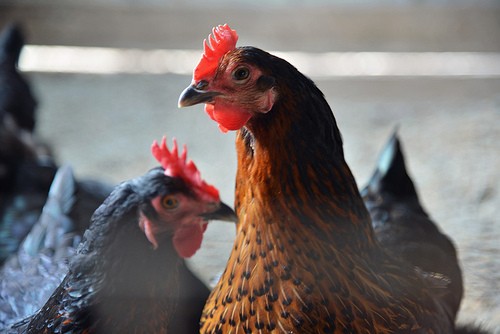
Scientists have identified another deadly new strain of bird flu in China, amidst the recent H7N9 outbreak in the country, which killed three Chinese people and infected another 300.
The new strain called H10N8 killed a 73-year-old woman in December, while hospitalizing another 55-year-old woman in January. Apparently, in both cases, the women caught the infection after their visit to the live poultry market.
In the first case, the woman based in Nanchang City in China, was rushed to hospital with severe fever on 30 November 2013. Though she developed pneumonia and was put on antibiotic and antiviral treatments, she succumbed to the H10N8 infection and died within nine days of contracting the disease. Doctors found that the woman, who had a history of other chronic medical conditions, died from multiple organ failure caused by the infection.
The second incident was also reported from the Jiangxi province of China. Further tests based on the tracheal swab samples confirmed reassortment origin of the new virus. Genome sequencing of the new strain linked virus genes to an avian origin, and nearly six genes originated from H9N2 virus, a strain linked to the origin of H7N9 and H5N1.
"A genetic analysis of the H10N8 virus shows a virus that is distinct from previously reported H10N8 viruses having evolved some genetic characteristics that may allow it to replicate efficiently in humans. Notably, H9N2 virus provided the internal genes not only for the H10N8 virus, but also for H7N9 and H5N1 viruses", author Dr Yuelong Shu from the Chinese Center for Disease Control and Prevention, Beijing, said in a news release.
Health officials said that the ability of the viruses to mutate from one host to another host is causing concern. "We should always be worried when viruses cross the species barrier from birds or animals to humans, as it is very unlikely that we will have prior immunity to protect us," Jeremy Farrar, director of Wellcome Trust and an expert on flu, told Reuters Health. "We should be especially worried when those viruses show characteristics that suggest they have the capacity to replicate easily or to be virulent or resistant to drugs. This virus ticks several of these boxes and therefore is a cause for concern."
The report has been published in The Lancet.













